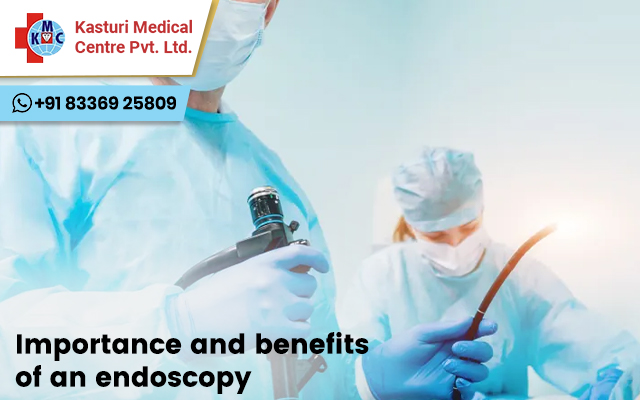Endoscopy refers to a medical procedure that allows doctors to check the inside of the body using an instrument called an endoscope. The endoscope is a thin, flexible tube with a camera and light on the end that can be put inside through a natural opening in your body, like the mouth or anus, or a small incision. It can diagnose and treat a wide range of medical conditions. Here, doctors from a private hospital in South Kolkata will discuss this procedure and importance of endoscopy in detail.
What is the importance of an endoscopy?
According to the doctors of a multispeciality hospital in South Kolkata, one of the most significant aspects of endoscopy is that it can diagnose different medical conditions before they become chronic such as ulcers, inflammation, and blockages in the digestive system. In some cases, it may be used to guide a biopsy needle or other instrument to a specific location in the body for further testing or treatment. Unlike other diagnostic procedures, such as surgery, endoscopy does not require large incisions or extensive recovery time. So, patients can often return to their normal activities much sooner than they would after a more invasive procedure.
What are the benefits of an endoscopy?
Endoscopy is very safe when performed by a qualified medical professional in a private hospital. The risk of complications is generally very low, and most patients experience only minor discomfort during the procedure. In some cases, sedation may be used to help patients relax and reduce any discomfort.
Another benefit of endoscopy is that it allows doctors to see inside the body and obtain a clear, detailed view of the organs and tissues being examined. This can be particularly useful in diagnosing conditions such as cancer, which may not be visible on a traditional X-ray or other imaging tests.
When do you need an endoscopy?
One of the most common types of endoscopy is a colonoscopy, which is used to examine the colon for signs of cancer or other abnormalities. This procedure is recommended for anyone over the age of 50, as the risk of developing colon cancer increases with age. During a colonoscopy, the doctor can remove any polyps or growths that are found and take samples of tissue for further testing if necessary.
If you have any digestive problems, get a consultation with a doctor from a nursing home to know whether you need an endoscopy.

